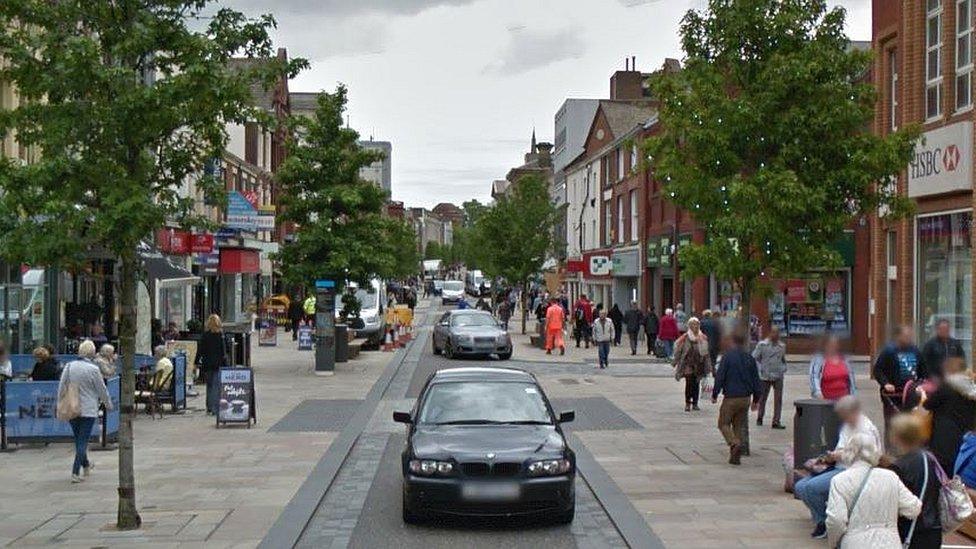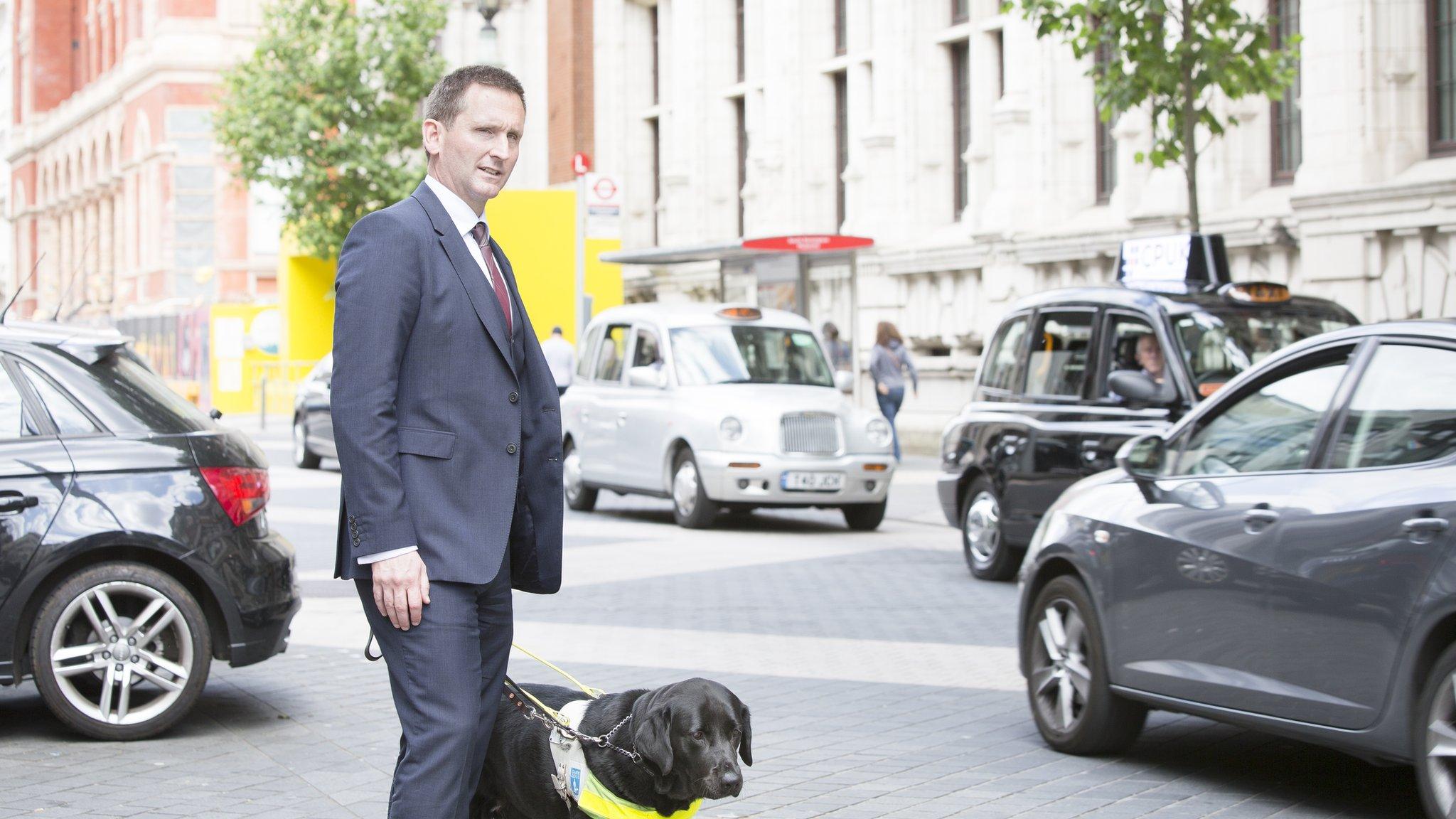'Shared' road schemes paused over dangers to blind people
- Published

Fishergate in Preston, Lancashire is now one of many examples of a "shared-space"
Plans for new "shared-space" road schemes are to paused over fears they are "dangerous and difficult to navigate" for visually impaired people.
Shared spaces try to make drivers take more care by removing traffic signs, pedestrian crossings and even kerbs.
But Transport Minister Nusrat Ghani said they "just don't work" for blind and partially-sighted people.
The government has told councils to "pause" schemes which are being considered or designed.
She told the BBC shared spaces meant visually impaired people did not have "the confidence they need to enter those communities and city centres where they need to share a space with someone driving a car."
Dozens of streets have become "shared spaces", where the areas that pedestrians and traffic can use are often at the same level or in some cases not delineated at all.
Previous guidance from the Department for Transport said they were intended to "change the way streets operate by reducing the dominance of motor vehicles, primarily through lower speeds and encouraging drivers to behave more accommodatingly towards pedestrians".
The department's new Inclusive Transport Strategy said the pause would "allow us to carry out research and produce updated guidance" but gave no detail as to how long the "pause" would last.
The Royal National Institute for the Blind (RNIB) said the schemes had meant some high streets had been turned into "no go zones".
This is because of the lack of kerbs, no safe crossing points and a reliance on eye contact.
"Whilst we are undoubtedly pleased the government has called a halt on dangerous 'shared-space' schemes, the strategy isn't clear on what will happen after it is paused", a spokesperson added.
Howard Murray, a councillor for Cheshire East Council, said a shared space scheme in Poynton completed in 2012 had been "almost an unqualified success".
"I accept some people find the uncertainty disconcerting, but it makes it safer," he said.
- Published3 July 2015
